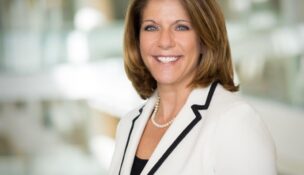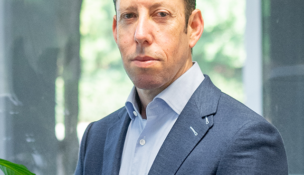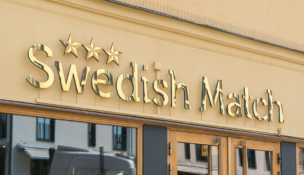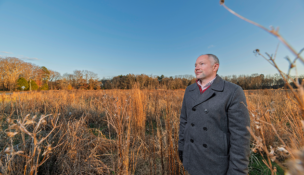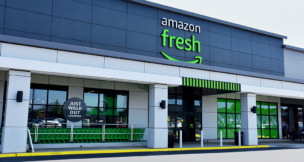The new normal
Commercial real estate firms adapt workplaces for pandemic life
Rich Griset //July 29, 2020//
The new normal
Commercial real estate firms adapt workplaces for pandemic life
Rich Griset //July 29, 2020//
For those returning to the office after months of working remotely, the novel coronavirus has turned the workplace into a potential microbial minefield.
What danger lurks on the surface of the break room table? What invisible pathogens spread silently through the vents of the HVAC system? And what of the frequently used door handles and elevator buttons that may harbor unknown pestilence?
Employees returning to Arlington’s handsome 1812 N. Moore St. building in Rosslyn may be spared some of these fears. Monday Properties Services LLC, the real estate investment firm that owns and serves as landlord of the 35-floor structure, has partnered with managed security services provider Kastle Systems International LLC to implement KastleSafeSpaces, a buildingwide integrated plan that aims to ensure the health and safety of all who enter the trophy office tower that serves as the headquarters for Nestlé USA Inc.
The system helps workplaces screen for COVID-19, promote social distancing practices and enact contact tracing. For employees, the system allows them to seamlessly enter buildings and get to their desks without ever having to touch a button. Every day, employees must answer self-screening questions about potential symptoms on their smartphones in order to unlock a temporary mobile credential. This unlocked credential acts as a security badge, allowing employees access to buildings, doors and the ability to remotely operate the controls of the elevator they’re riding in.
Kastle Systems CEO Haniel Lynn says his firm created the KastleSafeSpaces technology after they couldn’t find a similar product on the market.
“As we were looking out at solutions, we just were not finding any,” says Lynn, whose company manages security for roughly 3,600 buildings across the country. Already, Lynn says, KastleSafeSpaces is more popular than any other product they’ve previously released in their 48 years of business. “The level of response, I’d say, is really overwhelming.”
As Virginia attempts to get back to work in the midst of a pandemic, commercial real estate companies are endeavoring to reopen their office buildings while making sure tenants and their employees feel safe to return.
Top of mind
For Virginia Beach-based Divaris Real Estate Inc., one of the largest full-service commercial real estate firms on the East Coast, that effort has included the introduction of hand sanitizing stations, signage promoting social distancing and mask-wearing, and installing touchless entry devices on some doors.
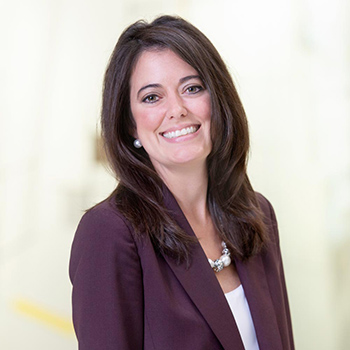
“A big thing is just keeping it in the forefront of everybody’s mind to be mindful,” says Kristina Townsend, regional portfolio director for 3.3 million square feet of office and retail space in Hampton Roads, Richmond, Maryland, North Carolina, South Carolina, Indiana and Tennessee. “In general, most of our tenants are following the guidance that has been put out.”
Townsend says many tenants are still working from home, but Divaris expects a gradual increase in occupancy during the next year.
“Some tenants are perfectly comfortable being in the building and haven’t left from Day One. Some are playing it a little more cautious,” Townsend says, adding that the pandemic seems to have reinforced Divaris’ connection with clients. “A lot of the landlord-tenant relationships have strengthened because we’re both working together and communicating.”
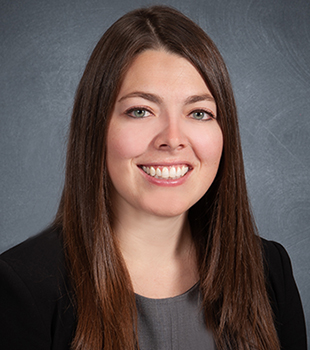
Katie Chalmers, a project manager with Cushman & Wakefield | Thalhimer, says that the company increased janitorial work, added hand sanitizer stations and distributed a “Recovery Readiness” document and a “Safe Six Checklist” for tenants to use as resources. Where possible, the company also upgraded HVAC units at its properties.
“Every building is going to be different, depending on what they have on their rooftops. Do they have an air handler, what’s its capacity, etc.?” says Chalmers, who handles project management in Central Virginia and the Charlottesville area. “Something that’s becoming more commonplace is adding UV lights to … coil sections of all main air handlers or rooftop units [to kill the coronavirus], but again, this may not be possible in all buildings.”
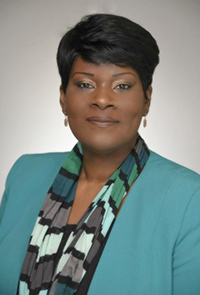
Jay Pruitt, executive vice president, property management, at Jones Lang LaSalle Inc. (JLL), says that her company added signage and sanitizing stations in their buildings and sneeze guards at concierge and security desks. One of the biggest challenges, Pruitt says, was wrangling enough sanitizing stations.
“They’re just not as available as we hoped they might be,” says Pruitt, whose company handles commercial real estate across the globe and is ranked 179th on the Fortune 500. In Virginia, JLL has properties in the Northern Virginia, Richmond and Hampton Roads markets.
‘A return to work’
Another challenge for commercial real estate companies is managing testy interactions among tenants during the pandemic.
“They’re kind of having these little battles with each other, because they feel so strongly in opposite directions of wearing a mask. So, one of the things that we have to do is encourage tenants to please comply. However, there is no means of enforcement,” says Pruitt, who manages assets in the D.C. metro area. “We can’t enforce [face coverings], the police [won’t] enforce [it], so that makes it a challenge as more and more tenants come back into the building and have varying opinions on wearing face coverings.”
Steve Sadler, CEO of Henrico County-based Allegiancy LLC, says his company has primarily focused on stepping up janitorial measures during the pandemic. Should someone test positive at one of Allegiancy’s more than 40 commercial properties, that property will undergo a massive cleaning campaign.
“We’re doing the usual [Centers for Disease Control and Prevention] guidelines,” says Sadler, whose company owns and manages properties in Virginia, North Carolina, South Carolina, Florida, Georgia, Texas and Oregon. “We have increased the level of disinfection, the cleaning of the bathrooms, posted all the signs.”
Because Allegiancy doesn’t own any retail space, Sadler says it hasn’t added physical barriers such as sneeze guards to its offices, but tenants are welcome to add their own. Though the financial impact of the pandemic is very real, Sadler says more than 92% of his tenants have paid their rents on time; the rest have negotiated lease extensions in exchange for a rent extension.
At the start of the pandemic, he says, the problems his company faced were of a more essential nature.
“For a while, we had a devil of a time keeping toilet paper in the restrooms, because people would steal it,” Sadler says. “We’d have to restock the toilet paper three or four times a day.”
That’s not to say everyone is returning to work right away. At Henrico-based insurance holding company Markel Corp., most of its offices will be gradually entering Markel’s own “Phase One” reopening through September, with attendance limited to less than half of a given workplace’s employees. The rest will continue to telework.
In late July, Markel welcomed back an initial round of employees who returned at their discretion. To prepare, Markel put up signage and sanitizer stations and made sure there were enough masks and gloves for all employees. Signs in stairwells state which direction employees are allowed to walk, and elevators are limited to two people at a time.
“We’re still closely managing density — the number of employees in the office at one time,” says Jennifer Blackwell, senior director of communications for Markel, adding that workforce rotations will also help manage the number of employees in the office at any one time. “We’re trying to make sure that we’re taking a very careful, thoughtful approach and allow a lot of flexibility, but [we] do want to start slowly having employees start to feel comfortable about coming back in.”
As for Monday Properties, its leaders say they wanted to take a proactive approach in implementing the KastleSafeSpaces technology at the building they developed from the ground up.
“As a trophy asset in our portfolio, we really felt like it was important to have the most cutting-edge technology available as we approached this re-occupancy,” says Jennifer Burns, vice president of property management and operations for Monday. “So far, we’ve received really positive feedback. We’ve been proactively communicating with tenants in this building and throughout our portfolio about how we can support their individual efforts [to reopen].”
Monday, which owns and operates commercial properties in Northern Virginia, California, North Dakota and South Carolina, has also published its own guide for tenants regarding the pandemic, increased its cleaning staff and added a Clorox Total 360 System (a wheeled cleaning device with a hose and spray wand) to each building in its portfolio.
The company is still looking into potential safety additions to its properties, including touch-free turnstiles for entering and exiting the building and thermal scanning in its lobbies to monitor body temperatures. Though it can’t implement the KastleSafeSpaces system at every property in its portfolio, Burns says, Monday is considering adapting parts of the program where possible.
“We’ve really taken an approach that we’re all in this together,” says Burns. “We wanted to continue to be a resource and support the efforts of our tenants as they approach a return to work.
Click to view a list of the largest commercial real estate firms in Virginia.
o





